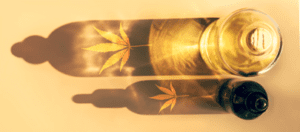 By now, surely you have heard of cannabidiol, or CBD, the non-psychoactive compound within cannabis that seems to provide a wealth of health benefits. Because CBD doesn’t make users high, and because researchers have not found evidence that CBD is harmful in any way, the compound is available over the counter almost everywhere in America — including right here in Katy.
By now, surely you have heard of cannabidiol, or CBD, the non-psychoactive compound within cannabis that seems to provide a wealth of health benefits. Because CBD doesn’t make users high, and because researchers have not found evidence that CBD is harmful in any way, the compound is available over the counter almost everywhere in America — including right here in Katy.
You might be dubious of any compound coming from cannabis, but you might be equally intrigued by the healing capabilities CBD offers. If you are interested in trying CBD for yourself, here are some tips to make your first experience extra positive.
Determine Why You Want CBD
CBD isn’t a cure-all; despite its popularity and its proponents proudly proclaiming its wide applications, CBD only has a few demonstrable effects on the human body. There is evidence that CBD does, in fact, have the following benefits:
- Seizure management. CBD alters the brain’s signaling system to reduce the frequency of seizures in those suffering from epilepsy conditions.
- Pain management. CBD both reduces inflammation and regulates neurotransmitters responsible for the experience of pain.
- Mental health management. Several studies have shown CBD to be beneficial in managing mental disorders like clinical anxiety and depression as well as insomnia.
While there are some hints that CBD could be good for more — like substance abuse treatment, diabetes prevention and skin health — the above three effects are currently the only ones with a wealth of peer-reviewed study. CBD doesn’t have any associated risks, aside from a few minor side effects including some interactions with medications, so it isn’t dangerous to take CBD without having an intentional effect in mind. However, you might be wasting your money and energy on CBD if you aren’t certain which benefits it will provide.
Knowing why you are using CBD will also guide you toward the right CBD products. The most common way to use CBD is with an infused oil, which can be administered under the tongue where it gets absorbed into the bloodstream quickly and efficiently. Sub-lingual administration, as this method is called, is best if you are using CBD to control a chronic health condition like epilepsy or chronic pain and need regular doses of the substance.
However, there is a bevy of other CBD products for you to consider. Some states offer CBD edibles, which provide a much slower but more pleasurable CBD experience. CBD topicals, like lotions and balms, are good for localized pain relief as in cases of arthritis or muscle tension. You can also find strains of marijuana grown near Seattle that have high CBD content if you want to take advantage of THC, also. You might travel to a Colorado dispensary and talk to a knowledgeable budtender to better understand your options.
Know About CBD Regulations
Cannabis detractors are quick to write off CBD as dangerous purely because it comes from the same plant as psychoactive THC. However, because CBD doesn’t produce the sensation of being high, it isn’t criminalized by the federal government. In fact, the federal government has no definite stance on CBD whatsoever; even as the FDA desperately tries to gain funding to study the compound, the feds refuse to acknowledge CBD in one way or the other.
As a result, CBD is regulated entirely by states, with the result that almost every state has a different set of regulations you need to be aware of. CBD is only fully illegal in three states: Idaho, Iowa and South Dakota. Most states have rules against selling CBD in food or beverage, but users can make their own edibles at home. A few states have rules about which hemp can be used to produce CBD products. Texas has label guidelines to help ensure that CBD products are safe for users and not coercive to minors.
Though you should be able to find CBD in convenience marts, coffee shops and even grocery stores, you would do well to purchase your CBD directly from a dispensary. You should talk to your doctor about receiving a recommendation for the medical marijuana program, or you should periodically travel to a state like Washington or Colorado where recreational dispensaries operate legally. Then, you can have a wide range of CBD products available to you and be able to ask questions about different products.
The more you can know about CBD — what it does to your body, what laws govern it, what products are available to you, etc. — the better. As you start taking CBD, you should continue to stay involved in the CBD community and abreast of any new developments. Then, you can use CBD to maintain your health safely and confidently.

